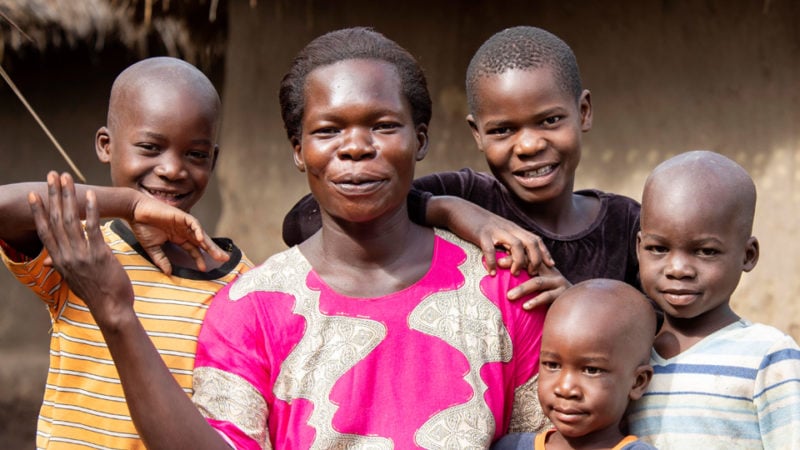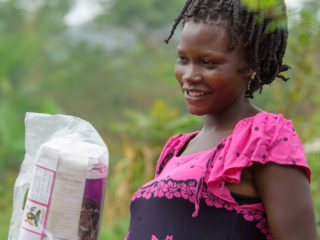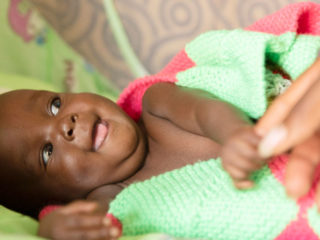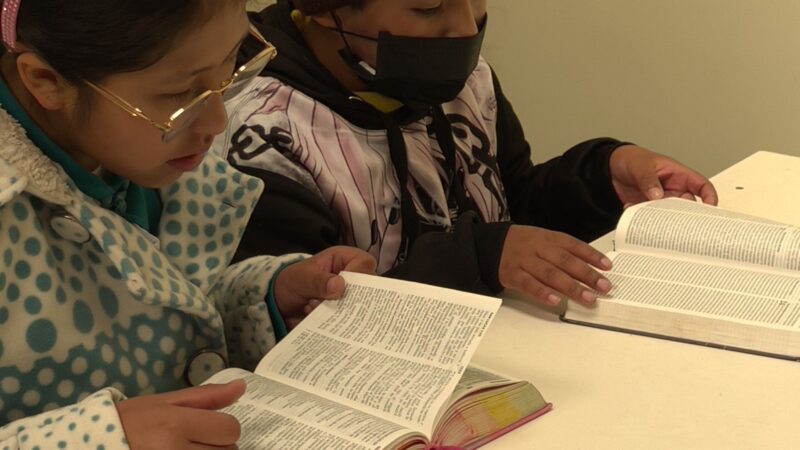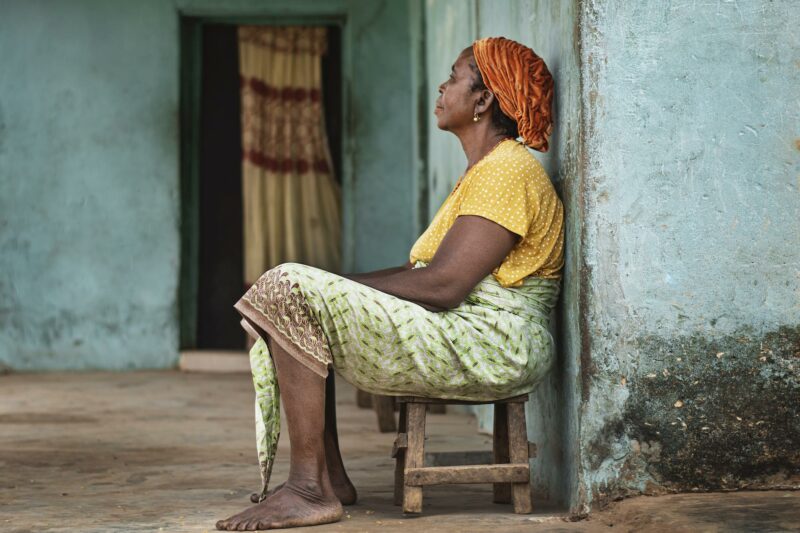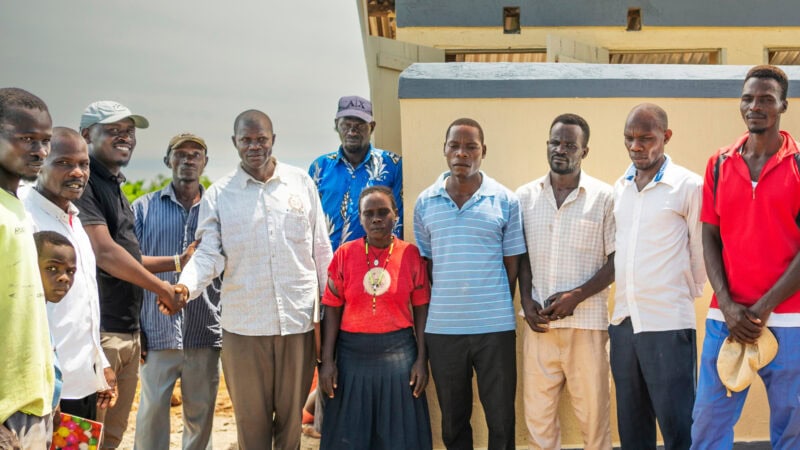Recently, we’ve been meeting with midwives and pregnant mothers in Uganda, asking them what it’s like for women in rural, poor communities to give birth—often with little to no professional help or medical supplies.
As you can imagine, there are great risks and hardships. In fact, tragically, 99% of all maternal deaths occur in developing nations, according to the World Health Organization.
Here are two of several stories we’ll be sharing with you in the coming weeks that will give you a glimpse into what it’s like to be pregnant in a developing nation…
Aminah: Pregnant in Uganda
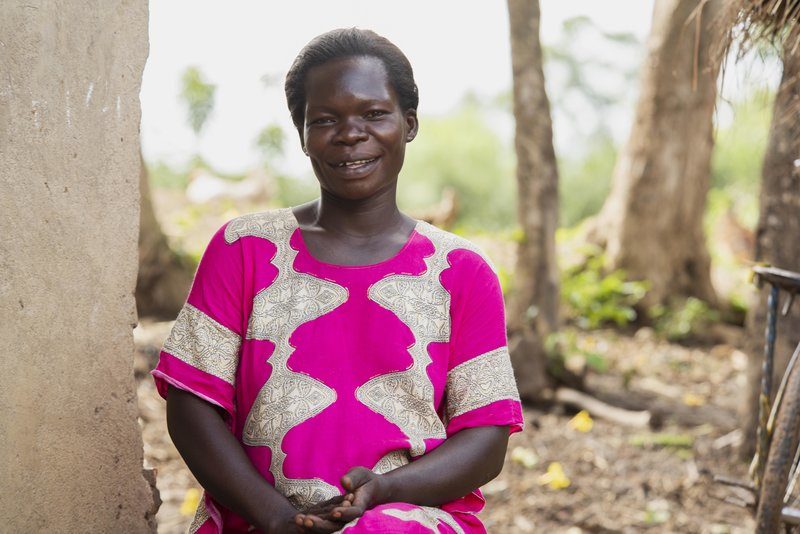 Aminah is expecting to give birth in December. Her first three children were born at the main hospital, but those experiences were not good. In Uganda, if women don’t bring their own medical supplies to the hospital for the delivery, the nurses may send them home or refuse to help them.
Aminah is expecting to give birth in December. Her first three children were born at the main hospital, but those experiences were not good. In Uganda, if women don’t bring their own medical supplies to the hospital for the delivery, the nurses may send them home or refuse to help them.
The women have to bring things as basic as surgical gloves.
To get prenatal care, there are long lines of waiting to be seen, to be admitted, and to get attention from a midwife. “Unbearable” is how Aminah described it. There is also little to no privacy.
After three babies, though, there was yet another factor that made her reconsider where she would even give birth to future children: Aminah had to travel the long distance from her village to the hospital, on the back of a bicycle, while in labor.
On a bicycle? While in labor?
Aminah ultimately decided to give birth to her fourth child at home. But giving birth at home has its own risks. A dirt floor, hiring a trained midwife to help with the birth, risk of infection, always wondering, “What if something goes wrong?”
The birthing process for women who live in poor rural villages around the world is frightening. Conditions are incredibly challenging, supplies are nonexistent, and trained midwives are few.
Aminah is still not sure whether she will deliver at home or at the hospital because she hasn’t yet acquired the required items.
Margaret: A Midwife
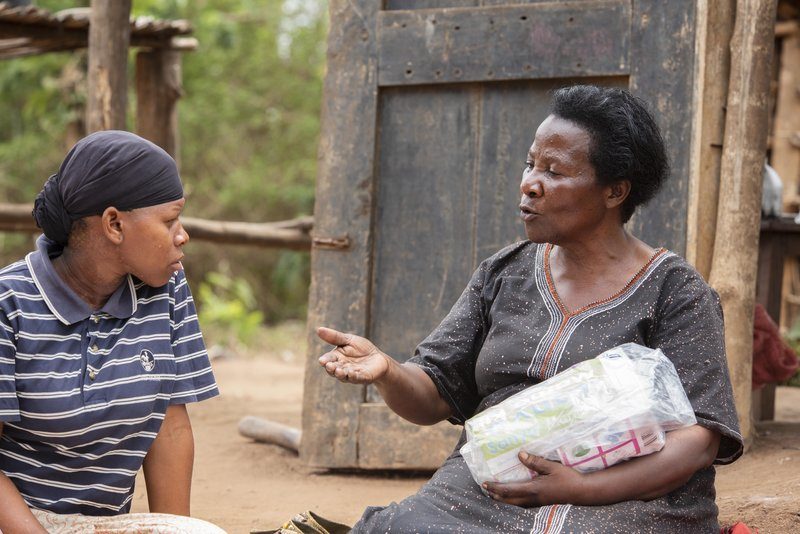 Margaret is a 52-year-old midwife from Kasaga Village. Margaret says, “I was trained to guide and lead mothers to the hospital for a safe delivery, but the hospital is very far from here.”
Margaret is a 52-year-old midwife from Kasaga Village. Margaret says, “I was trained to guide and lead mothers to the hospital for a safe delivery, but the hospital is very far from here.”
The Nakaseke hospital is 30 miles away, so many women opt to have their babies at home or wait so long that they cannot make the trip.
“There are too many complications that arise when a woman is giving birth at home,” Margaret said. Dirt floors, lack of supplies and a lack of a sterile knife to cut the umbilical cord can all cause serious problems, such as tetanus.
Sometimes they use dirty thread to tie off the umbilical cord and stop the blood flow, but, tragically, it can lead to disease. Lack of clean water, healthy food and having to work by candlelight all cause increased risks of death and other problems for the mother or baby.
“There is rampant tetanus and HIV. Many times, they [women] turn up without anything to use during childbirth,” she said. “That is why if they at least have a Mama Kit, initial problems are solved.”
What is a Mama Kit?
Bright Hope’s church partners in Ugandan and Zambian communities where we work saw this need and asked if we could help with a Hope for Today project. So together we have developed two Mama Kits that can be given to pregnant mothers in rural villages where we work. There are two kits for pregnant mamas.
To ensure the health of the mother and baby, we encourage expectant moms to get three prenatal check-ups from a local health center during the course of their pregnancy. After their third visit, mothers will receive a Mama Kit. These kits include items such as:
Mama Kit – Birthing Supplies
- Plastic sheets to keep the area clean and sterile
- Surgical gloves for the midwife
- Cotton, gauze
- A cord band ligature and sterile razor blade for tying off the umbilical cord
- A child health and immunization card to encourage the mom to get the child vaccinated
Mama Kit – Layette
- Two sets of receiving blankets
- Baby hats, socks, and gloves
- Onesies and warm clothing
- Mosquito net (to protect against malaria)
- Baby soap and oil
- Diaper bag
Each kit is $25.00 and is assembled in-country. There is also a DELUXE KIT which combines the two kits into one. If you want to change the statistics and help a woman have a safer, healthier delivery, click here.

